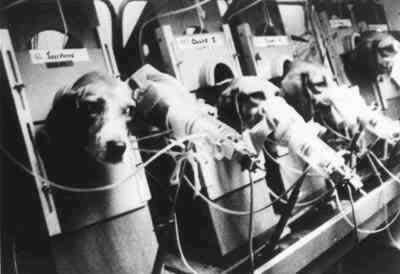The debate over animal research has never been as public and centre stage as it is now.
There are both medical and ethical reasons to ban animal testing. Most people are mainly interested in the medical aspect, so I’ll focus on that here.
First of all, it’s no good to say that animal research is essential because researchers say so. People in the biomedical field are part of animal research, have a vested interest in it, and therefore their views are biased in favour of it. So it’s important that the public, who after all have to bear the consequences of it (and in many cases pay for it through taxation as well as by buying its products), make up their own mind.
Animal research is unreliable in the extreme. Let’s analyze one particularly important and significant example, before giving general arguments to back it up.
Smoking and cancer
The link between smoking and lung cancer was discovered by the British scientist Sir Richard Doll in the 1950s, by means of a study of human lung cancer patients in twenty London hospitals. He used the epidemiological method, i.e. the statistical study of diseases in human populations. The practical application to medicine of this all-important discovery had been hindered and delayed by animal research. Why?
First, because animal experiments had previously failed to demonstrate this link and they had ruled it out. Medical researchers were dismissive of Doll’s discovery. They had already tried to trigger cancer in animals using tobacco tar but had failed, they pointed out. Only later was it shown that their experimental procedures contained serious errors.
And then, even after Doll’s theory was published, animal researchers tested it by trying to reproduce the carcinogenic effects of smoking in animals. Some of this animal research was funded (you may guess) by tobacco manufacturers. Look at what they said: "No clearcut case against cigarette smoking has ever been made despite millions spent on research ...The longer these tests go on, the better our case becomes." (Phillip Morris, 1968)

It took 50 years to induce lung cancer in laboratory animals forced to breathe tobacco smoke (remember those pictures of rows of smoking beagles with cigarettes fixed in their masks?), thus delaying the health warning to humans and resulting in millions more unnecessary deaths.
In the end, it was the so-called British doctors study, a prospective clinical trial which ran from 1951 to 2001, that provided convincing statistical proof that tobacco smoking increased the risk of lung cancer. Doll’s study has provided the foundation for all other research into the impact of smoking cigarettes on health. It has arguably helped to save millions of lives.
This was a particularly important discovery, because it shows the role of lifestyle in cancer prevention (it actually paved the way to other discoveries linking cancer and diet) and, as we know, prevention is better than cure. There is here an analogy between the animal research lobby and the tobacco manufacturer's lobby, an analogy that goes beyond the fact that in this case they formed an “unholy alliance”.
Some smoking experiments on animals, intended to disprove its link with lung cancer and to give smoking the okay, were financed by cigarette companies. The analogy goes beyond this “unholy alliance” because both lobbies (animal experimentation and tobacco manufacturers) put the interest in their own self-preservation above public health.
No comments:
Post a Comment